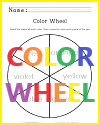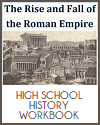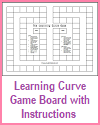The September 2012 issue of Scientific American has an interesting article by Daniel T. Willingham entitled "Brain Science in the Classroom" (page 14). Although not all educators will agree with Willingham's conclusions, the article is worth reading for anyone educating children.
"In one study, students who read a text once and then tried to recall it on three occasions scored 50 percent higher on exams than students who read the text and then reread it three times." This basic knowledge of human memory retention is reflected in the modern movement to include basic recall, critical thinking, and other questions throughout a text instead of merely at the end (or not until test time). A great tactic for teachers? Say that you read a piece of text in the morning. Immediately after, question the kids to recall what they have just read. Over the course of the day, ask more questions that cause the students to recall the morning's text. The next day or several days later, quiz the students on the text. Odds are that you will notice that their memories have improved over using previous methods.
"(A) common misconception is that teaching content is less important that teaching critical thinking skills or problem-solving strategies. Scientists have...long known that kids must be explicitly taught the connections between letters and sounds and that they benefit most when such instruction is planned and explicit." This bit of knowledge reflects something commonly seen in reading classes. Teachers frequently attempt to teach reading strategies, but often get frustrated at the lack of results, and and up telling students precisely how certain letter combinations, etc., are pronounced. If you're one of these teachers, you have scientific research backing up what you've been doing.
"Many teachers...need to be disabused of the notions children have different 'learning styles' and that boys' brains are hardwired to be better at spatial tasks than girls'." Anyone graduating with a degree in education today will have been taught (hopefully) that girls are just as capable at math and science as are boys. But Willingham's comment regarding differentiated learning styles might prove to be a harder sell among educators and parents than he realizes. |




















































